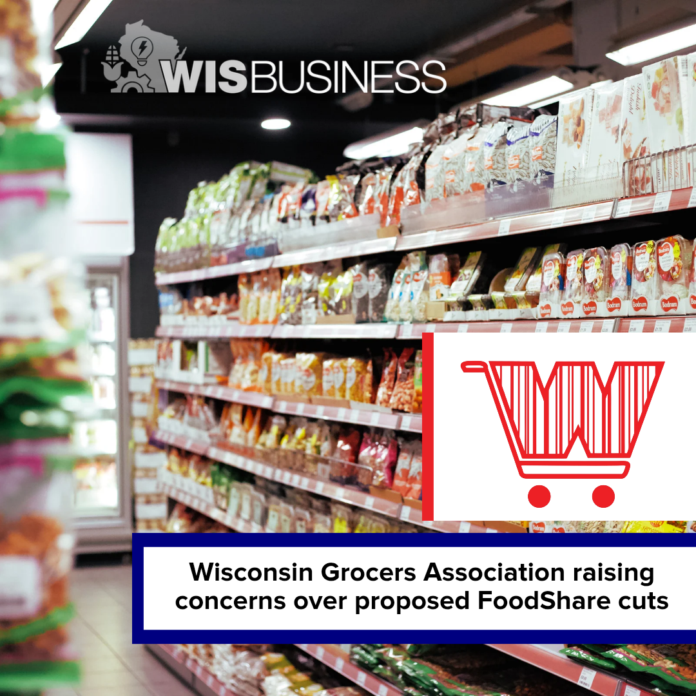The Wisconsin Grocers Association is raising concerns about “deep cuts” to FoodShare included in the federal budget reconciliation bill.
FoodShare is the state’s version of the Supplemental Nutrition Assistance Program, which provides food benefits to low-income recipients. WGA says the program is a lifeline for hundreds of thousands of state residents, as well as a key part of local retail food economies.
According to the association, the program “helps make it financially viable” for grocers and other small retailers to keep brick-and-mortar stores open in some communities. Under the budget bill, the group argues FoodShare reductions would put an increased burden on local grocers, food banks and others.
Mike Semmann, president of the WGA, says some local grocery stores may shut down without additional support if FoodShare is cut.
“Grocers will always step up — we always have,” Semmann said in a statement. “But we can’t do it alone, and some grocery stores shouldn’t have to pick between keeping their doors open and feeding their neighbors.”
The state Department of Health Services says the cuts to SNAP would cost Wisconsin taxpayers $314 million per year and put 90,000 people at risk of losing their benefits. The program provides benefits to nearly 700,000 state residents, DHS says.
“This is over a quarter billion dollars each year that Wisconsin couldn’t use for our health care, our roads, our schools, or our economy,” Wisconsin Medicaid Director Bill Hanna said in the DHS release.
The agency says working families in the state generate $1.50 in economic activity for every $1 in SNAP benefits provided. And DHS notes the state’s payment error rate of 4.41% is among the lowest in the country.
“These errors are not fraud,” the agency said. “For the first time ever, Congress is proposing an extreme, zero tolerance policy for payment errors harming states like Wisconsin that consistently keep error rates low.”
The WGA is also applauding federal lawmakers for “making permanent tax relief a reality” for small businesses, referencing another provision in the reconciliation bill. Semmann is thanking the Trump administration and policymakers for the “big win” on taxes included in the legislation. The bill would expand a tax deduction available to small businesses and make it permanent, according to a document from the White House.
“But let’s be clear: while some will take the tax benefits and move on, Wisconsin’s grocers and economic stakeholders will be the ones left to safeguard our communities when FoodShare dollars disappear,” Semmann said.
Meanwhile, the head of Green Bay’s Edge Dairy Farmer Cooperative says the reconciliation bill includes multiple provisions that are “favorable to dairy farmers,” including a $56.4 billion increase for farm bill programs.
“We appreciate the support of the House leadership and members of Congress that helped deliver movement on several key policy priorities for Edge dairy farmer members,” CEO Tim Trotter said in a statement.
The legislation would extend the Dairy Margin Coverage Program, which helps farmers manage market risk, through 2031 while expanding certain commodity programs. Plus, it would expand conservation programs, put more money toward animal health efforts and more, the co-op notes.
Trotter says the group will work to “ensure these critical provisions for the dairy industry remain at the forefront as the bill moves over to the Senate for consideration.”
See more perspectives on the reconciliation bill at WisPolitics.







